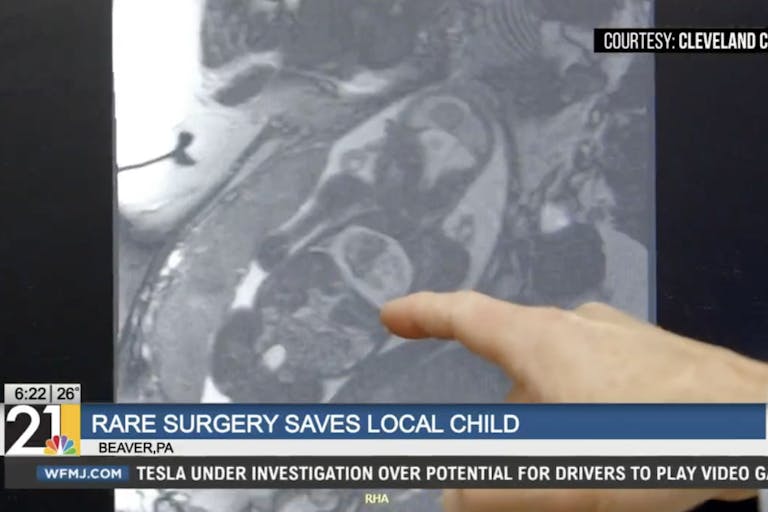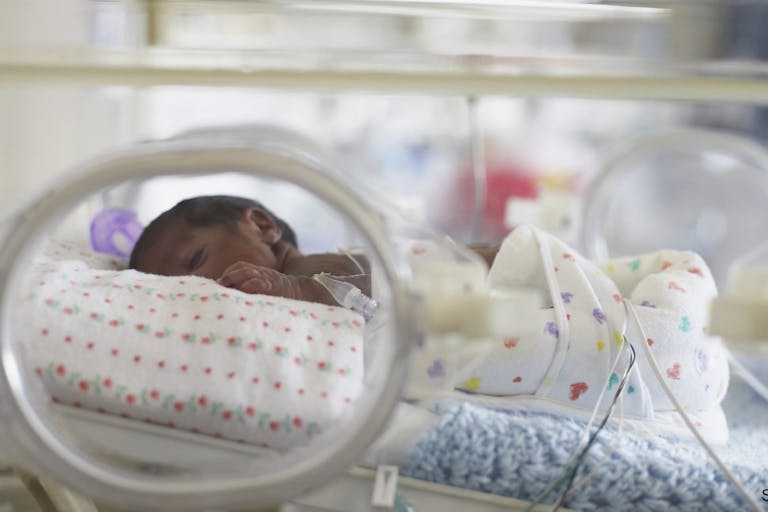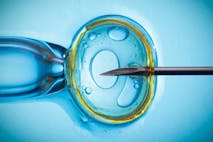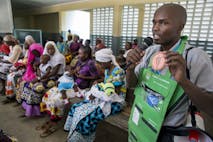
Ohio physicians perform complex surgery to save preborn baby boy’s life
Samantha Kamman
·
Pro-abortion nurses: Prenatal surgery can’t fix everything, so women still need abortion
A common refrain from abortion advocates is that women need abortion if their child is diagnosed prenatally with a life-limiting illness, a birth defect, or other serious condition. The justification is that the child will suffer if allowed to be born, so it’s kinder or more merciful to take their lives in the womb. Yet medical advancements have meant that many of these children can receive treatment during pregnancy — yet abortion advocates still argue that these children should be aborted.
Abigail Wilpers and Kristen Gosnell are both pro-abortion nurses who wrote an op-ed for Stat News, arguing that maternal-fetal medicine surgical advancements are not an “alternative” to abortion. “Maternal-fetal surgery can be used to treat a range of conditions, from congenital diaphragmatic hernia to spina bifida and rare complications of twin pregnancies,” they admitted, but added, “As nurses who specialize in the care of pregnant people and families who receive diagnoses of severe fetal conditions, we know firsthand that prenatal surgeries can save lives. But maternal-fetal surgery is not a panacea and should not be considered an alternative to abortion care.”
They argued that many surgeries don’t offer a complete “cure,” that they can be high-risk, and that not every organ system — or patient — is eligible for surgical treatment. So evidently, to them, this means abortion is still necessary.
“[J]ust because surgery is possible doesn’t mean people want to undergo it,” they argued. “These procedures carry significant risks that include miscarriage, preterm birth, and maternal illness or even death. Although less-invasive approaches, known as fetoscopic surgery, have decreased maternal complications, some procedures still require a large incision into the uterus, which puts the pregnant person at significant risk for complications in all future pregnancies. In addition, most children who receive prenatal surgery still require further treatments and hospitalizations throughout their lives, exacting a significant medical, psychological, and economic toll.”
Article continues below
Dear Reader,
In 2026, Live Action is heading straight where the battle is fiercest: college campuses.
We have a bold initiative to establish 100 Live Action campus chapters within the next year, and your partnership will make it a success!
Your support today will help train and equip young leaders, bring Live Action’s educational content into academic environments, host on-campus events and debates, and empower students to challenge the pro-abortion status quo with truth and compassion.
Invest in pro-life grassroots outreach and cultural formation with your DOUBLED year-end gift!
Their argument boils down to one thing: ableism.
Essentially, Wilpers and Gosnell are arguing that because these children may still require treatment after birth, that their conditions won’t be completely and unconditionally cured and their lives may still be lived with a disability; therefore, it is better, in some cases, to have an abortion.
And if their parents don’t want to save their child’s life, then it should be acceptable to allow the child’s life to be intentionally taken. To be clear, their focus for this line of thinking here only seems to apply to children diagnosed prenatally with disabilities. If a baby was born with, for example, spina bifida, and a parent decided it would be too expensive to treat it, that parent would be accused of child neglect. If they had a doctor intentionally murder their child due to that disability, they would be charged with homicide. But if the child is still in the womb and the parents pay a doctor to kill their child, this is held up as empowerment and a “right.”
A child having a disability is not an excuse to deprive him or her of medical care, yet Wilpers and Gosnell are arguing that very thing. The only difference in the scenario is location; we know, as a scientific fact, that these preborn children are human beings, alive and growing. And yet here are two medical professionals arguing that it should be legally and medically acceptable to discriminate against a human being solely due to disability, depriving them of their most fundamental right: the right to life.

Live Action News is pro-life news and commentary from a pro-life perspective.
Contact editor@liveaction.org for questions, corrections, or if you are seeking permission to reprint any Live Action News content.
Guest Articles: To submit a guest article to Live Action News, email editor@liveaction.org with an attached Word document of 800-1000 words. Please also attach any photos relevant to your submission if applicable. If your submission is accepted for publication, you will be notified within three weeks. Guest articles are not compensated (see our Open License Agreement). Thank you for your interest in Live Action News!

Samantha Kamman
·
Analysis
Nancy Flanders
·
International
Angeline Tan
·
Pop Culture
Cassy Cooke
·
International
Cassy Cooke
·
Analysis
Cassy Cooke
·
International
Cassy Cooke
·
Pop Culture
Cassy Cooke
·
Politics
Cassy Cooke
·
Politics
Cassy Cooke
·
Pop Culture
Cassy Cooke
·